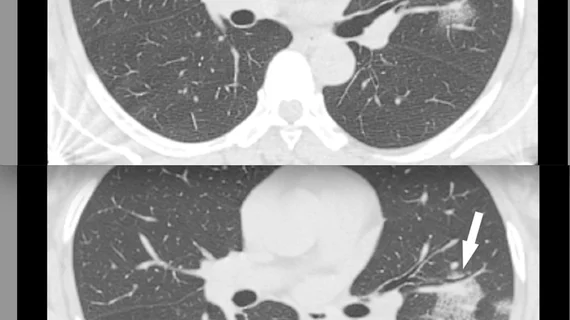How effective are chest CT severity scores in managing COVID?
Since the onset of COVID in late 2019 several research teams have developed scoring systems capable of standardizing COVID diagnoses based on CT imaging, but their effectiveness remains unclear.
A new meta-analysis offers a deeper look at the use of (CTSS) utilized from January 2020 to June 2021 to assess their predictive performance in determining diagnosis, course of treatment and outcomes in COVID patients. While the studies on these systems have proven them to be effective in diagnosing and treating COVID in specific cohorts, the varying settings in which they were used makes it difficult to derive definitive conclusions on their efficacy, researchers involved in the meta-analysis suggested.
“Clinicians are unsure of whether CTSS thresholds should be used to define illness severity and predict prognosis because different CTSS thresholds have been reported in various studies,” corresponding author of the new paper Jay Prakash, an Assistant Professor in the Department of Critical Care Medicine at Rajendra Institute of Medical Sciences in India, and co-authors explained.
However, based on the team’s analysis of 23 studies involving more than 4,000 patients, there is no need to be unsure, as the experts found use of the scoring systems to be valuable for predicting COVID severity and mortality.
For disease severity, pooled sensitivity, specificity, and summary area under the curve (sAUC) of CTSS were 0.85, 0.86 and 0.91; for prediction of mortality, pooled sensitivity, specificity, and sAUC of CTSS were 0.77, 0.79 and 0.84, respectively.
“Our meta-analysis shows that CTSS provides strong discriminating power for predicting disease severity and mortality in COVID-19 patients,” the authors noted, adding that, if further validated, CTSS use could reduce mortality by helping clinicians to identify severe COVID cases in their earliest stages.
The detailed study can be viewed in the Journal of Medical Imaging and Radiation Sciences.

